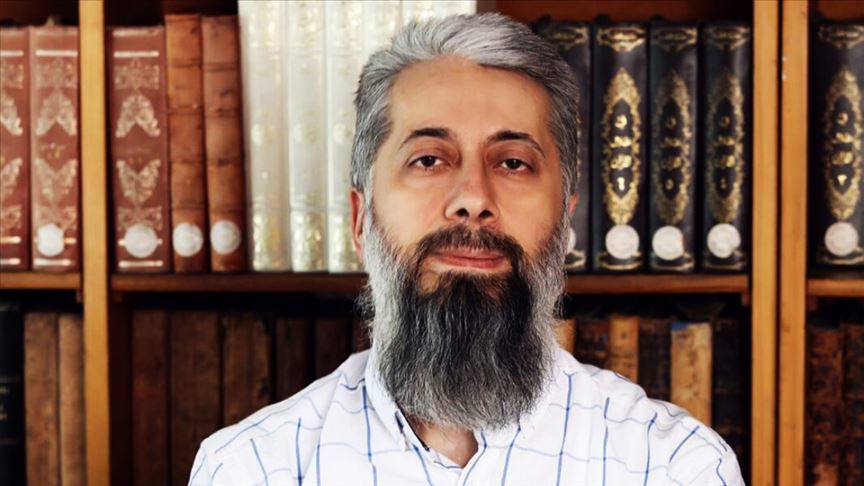Pro-Erdoğan professor gets over 2,900 articles about him censored


Professor Bedri Gencer, known for his controversial statements, including thanking President Recep Tayyip Erdoğan for withdrawing from the İstanbul Convention, criticizing men and women shaking hands, and linking earthquakes to immorality, has successfully censored 2,911 news articles and online contents mentioning him.
The Akyazı Penal Judgeship of Peace issued the censorship order at Gencer's request. Among the censored content are bianet's Media Monitoring Reports, which include quarterly and annual documentation of freedom of expression violations in Turkey.

BIA Media Monitoring Reports
Gencer, through his lawyer Emir Akpınar, sought judicial intervention. In the petition, Akpınar claimed that Gencer is one of Turkey's top academics. Akpınar noted that as a sociology professor, Gencer had called for amnesty for individuals arrested or convicted due to child marriage and had conducted a study on this issue in 2020. He questioned, "Does our President and our MPs defend child marriage and pedophilia?"
Akpınar argued that Gencer's words were distorted and blamed organizations like the Kurdistan Workers’ Party (PKK) and the Fethullah Gülen cult, an Islamic group held responsible for the 2016 coup attempt, for this distortion. He also referred to protesters at Yıldız Technical University as "student-looking militants" and described their actions, such as disrupting classes, initiating signature campaigns, and sealing doors, as provocations.
Referencing mainstream media outlets like Hürriyet, Milliyet, and Sabah, Akpınar pointed out that Gencer did not appear in these publications, accusing marginal media outlets associated with terrorist organizations of slander. He claimed that the news articles posed a threat to Gencer's personal safety and asserted that his client's innocence had been established by administrative and judicial decisions.
Akpınar argued that the news articles violated Gencer's right to be forgotten and requested their censorship. Consequently, the Akyazı Criminal Court of Peace imposed a collective access ban and ordered the removal of the articles without individual assessment.
The censorship applies to content on social media platforms like YouTube, Dailymotion, Facebook, Instagram, X (Twitter), and Ekşi Sözlük, as well as news websites including bianet.org, HaberTürk, sol.org.tr, Cumhuriyet, Birgün, Halk TV, TELE1, Evrensel, Sözcü, Karar, Sputnik, Independent Türkçe, Oda TV, Yeniçağ, Günboyu, T24, Gazete Manifesto, Tükenmez Haber, Gerçek Gündem, ABC Gazetesi, KRT TV, toplumsal.com.tr, mynet.com, Gazete Yolculuk, Yurt Gazetesi, TV100, İleri Haber, Medya Tava, Gazete Duvar, Medya Radar, Diken, a3haber.com, Artı Gerçek, Yeni Yaşam, sendika.org, Pirha, and Dokuz8.
"Undemocratic and unlawful practice of courts"
Erol Önderoğlu, who prepares bianet’s Media Monitoring Reports, criticized the practice of Criminal Courts of Peace regarding the censorship decision, calling it undemocratic and unlawful.
“I still can't understand why the application for this access ban was made in Sakarya Akyazı, rather than Istanbul or Ankara. The 60-70 page Media Monitoring Reports we've been preparing for 23 years have become victims of a censorship decision based solely on a debate over whether a statement was made before or after an earthquake. This report, which has exposed the undemocratic and unlawful practices of Criminal Courts of Peace for years, has been censored under the guise of ‘personality rights.’ We do not accept this,” Önderoğlu stated.
35,000 news articles censored in 8 years
According to the latest report by the Freedom of Expression Association, published in July 2023, 35,023 news articles were blocked from access, and 29,253 were removed or deleted by 6,509 different decisions from 543 different Criminal Courts of Peace between 2014 and 2022 under Article 9 of Law No. 5651.
In 2022 alone, 6,528 news articles of public interest were blocked, and 5,388 articles were removed and censored due to ‘personality rights violations.’
Censorship continues despite constitutional court ruling
Despite a pilot ruling by the Constitutional Court in 2021 regarding internet access bans, and a subsequent decision in February 2024 declaring Article 9 of Law No. 5651 unconstitutional, censorship continues.
The court ruled that the article’s provisions for blocking access and removing content due to ‘personality rights violations’ lack clear scope and boundaries, infringing on freedom of expression and press freedom.
The Constitutional Court noted that systematic access bans by Criminal Courts of Peace constitute a structural violation of freedom of expression and that the existing appeal mechanisms are ineffective. (HA/VK)




